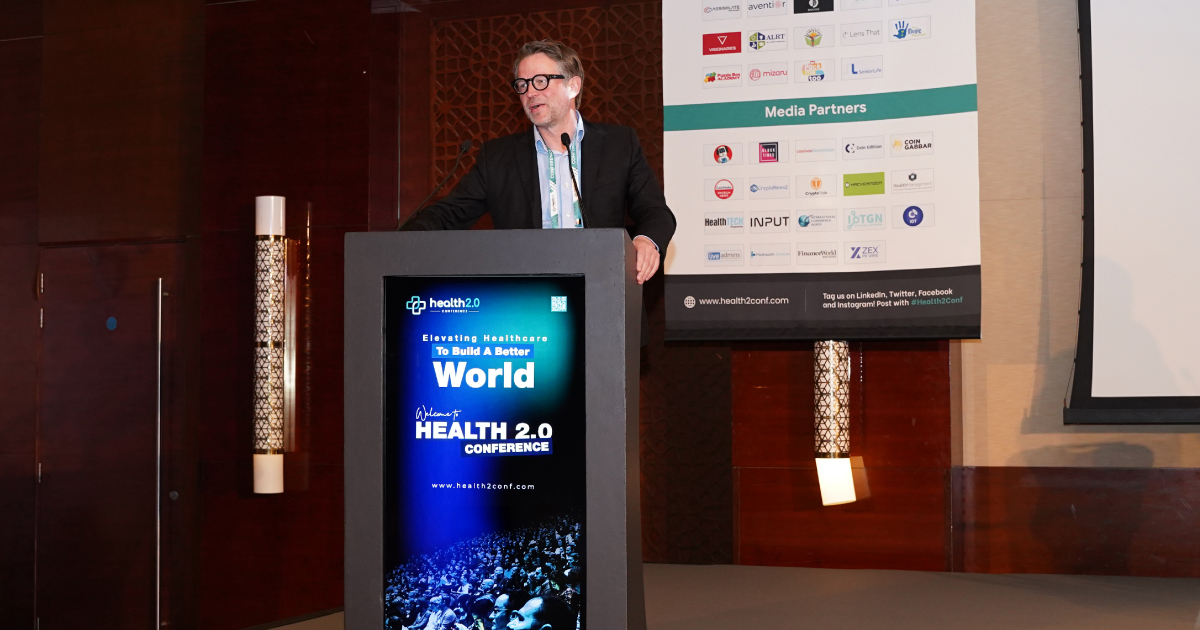Over the years, the pharmaceutical industry has experienced significant growth and evolution in developing new drugs and therapies that have transformed healthcare. However, as the world changes rapidly, the industry’s need for innovation and development becomes more pressing.
Despite the industry's successes, many challenges still need to be addressed. For instance, developing and bringing new drugs to market is often prohibitively expensive, and many people worldwide still need access to essential medicines. Furthermore, the post-COVID healthcare conference in the USA has remarked on the need for the industry to be more agile and attentive to emerging threats.
In this blog, we'll explore the pharmaceutical industry's current state, its challenges, and some exciting innovations and developments that are on the horizon. As discussed at the Health 2.0 Conference, the pharmaceutical industry's future promises to be an exciting and dynamic space from new approaches to drug discovery and development to cutting-edge technologies like gene editing and artificial intelligence. So, let's dive in and explore what's next in pharma!
Challenges Faced By Pharmaceutical Industry
The upcoming healthcare events in the USA will discuss some of the most prominent challenges faced by the pharmaceutical industry:
- Research and Development Costs: Developing a new drug from scratch is long and expensive. Researching, testing, and bringing a new drug to market can take years and cost billions of dollars.
- Regulatory Compliance: The pharmaceutical industry is heavily regulated to ensure the safety and efficacy of medications. Companies must comply with strict guidelines from regulatory bodies such as the FDA, EMA, and other regional authorities.
- Patent Protection: Patents protect pharmaceutical companies' intellectual property. However, they can also lead to high drug prices and limited access to life-saving medications for those who need them.
- Generic Competition: Once a drug's patent expires, generic drug manufacturers can produce and sell the same medication at a lower price, reducing the original manufacturer's revenue.
- Drug Pricing: High drug prices have become a contentious issue, with many arguing that they are unaffordable for patients, leading to limited access to care.
- Counterfeit Drugs: The counterfeit drug trade is a growing problem that can lead to dangerous or ineffective medications reaching consumers.
- Supply Chain Management: Ensuring that medications are produced and distributed safely and efficiently. It is a complex challenge requiring industry coordination and collaboration.
The Health 2.0 Conference addresses that these challenges require ongoing research and development investment, regulatory compliance, and supply chain management. It also necessitates collaboration between industry stakeholders, government agencies, and patient advocacy groups to ensure that patients can access safe and effective medications at an affordable price.
Top Pharmaceutical Industry Technology Trends

-
Digital Transformation
In today's fast-paced world, digital transformation has revolutionized nearly every industry, and the pharmaceutical sector is no exception. As a result, technology integration in drug development has dramatically altered how we approach medicine, from using artificial intelligence and machine learning in drug discovery to the impact of digital health on patient outcomes.
With these advances, we can now explore and analyze vast amounts of data more efficiently than ever, enabling us to identify promising drug candidates and streamline clinical trials. And as we continue to develop more personalized treatments, patients can expect to receive the care they need, require, and where they need it most.
According to the top healthcare conferences, the future of medicine, digital transformation promises to unlock new possibilities for better health outcomes and more effective treatments.
-
Precision Medicine
During the recent post-COVID healthcare conference in the USA, precision medicine was highlighted as a game-changing approach to healthcare. This approach involves customizing treatments for individual patients by analyzing their unique genetic and molecular profiles. By taking a more personalized approach, we can better understand the underlying causes of diseases and develop targeted therapies that are more effective and less harmful.
The conference emphasized the potential of precision medicine to revolutionize healthcare and improve patient outcomes. The precision medicine market is projected to exceed $96 billion by 2024, primarily driven by the growing popularity of bioinformatics.
With the help of bioinformatics, we can analyze vast amounts of data and develop personalized prescriptions and treatments tailored to individual patients. This approach has gained traction due to its potential to improve patient outcomes and lower the expenses of healthcare significantly. As the demand for personalized medicine continues to grow, the precision medicine market is expected to expand rapidly over the next few years.
-
Cell and Gene Therapies
The world of medicine is rapidly evolving, and cell and gene therapies have been at the forefront of this revolution. The growing interest in these therapies lies in their ability to provide potential cures for previously untreatable diseases.
According to the experts at the top healthcare conferences, with the help of advanced genetic technologies, we can now modify human cells to repair, replace, or eradicate damaged or diseased tissue. This approach has shown incredible promise in treating various conditions, from genetic disorders to cancer. As we advance in this field, we can offer new hope to patients who have exhausted all other treatment options. Cell and gene therapies will become an essential part of modern medicine, and we are excited to be a part of this transformative era in healthcare.
-
Cloud Technology
Cloud technology has revolutionized the pharmaceutical industry, making it more efficient and effective. With the power of the cloud, pharmaceutical companies can securely store and manage large amounts of data, collaborate seamlessly with teams worldwide, and streamline complex processes. This technology has allowed faster and more accurate drug development, clinical trials, and regulatory compliance.
Additionally, cloud technology has enabled telemedicine, giving patients greater access to healthcare services from the comfort of their own homes. Experts at post-COVID healthcare conference in the USA suggest that cloud technology will undoubtedly play a critical role in driving innovation and improving patient outcomes. With the power of the cloud at their fingertips, pharmaceutical companies can focus on what matters most: delivering life-saving treatments and improving the quality of care for patients worldwide.
-
mRNA Vaccines
According to the upcoming healthcare events in the USA, vaccines have long been a cornerstone of the pharmaceutical industry, protecting individuals from various infectious diseases. However, in recent years, the development of mRNA vaccines has opened up new possibilities for preventing and even curing diseases. These innovative vaccines work by teaching the body's cells to produce proteins that trigger an immune response, effectively training the immune system to recognize and fight off specific viruses or bacteria. The COVID-19 pandemic has demonstrated the power of mRNA vaccines, with highly effective vaccines being developed and distributed in record time. Beyond COVID-19, mRNA vaccines have enormous potential to tackle many other diseases, including cancer, HIV, and malaria.
According to the top healthcare conferences, the pharmaceutical industry continues to invest in vaccine research and development, and we expect to see even more breakthroughs in disease prevention and treatment. With vaccines playing such a critical role in public health, individuals need to stay informed and take advantage of the protection they offer. We can continue to make great strides in improving global health outcomes by working together.
Conclusion
According to the Health 2.0 Conference, the pharmaceutical industry plays a crucial role in improving the quality of healthcare around the world. Continued innovation in this field is essential for delivering better treatments and therapies to patients, ultimately leading to improved health outcomes and a higher quality of life. Moreover, these advancements can significantly impact the global economy, driving growth and creating new jobs.
We can encourage innovation in the pharmaceutical industry by advocating for policies prioritizing research and development, supporting companies investing in cutting-edge technologies, and participating in clinical trials. By doing so, we can help ensure that the pharmaceutical industry continues to push the boundaries of what's possible and delivers transformative new treatments that improve people's lives everywhere. To know more about the pharma industry, attend the upcoming healthcare events in the USA.














